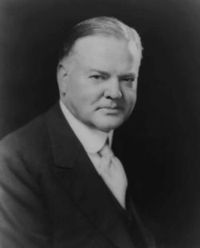Think of this as Volume 12, Number 42 of A-Clue.com, the online newsletter I've written since 1997. Enjoy.

By this point in the economic cycle unemployment should be falling, not rising. People who have jobs, like my dear wife, are incredibly productive and highly profitable. Many are being pressed to the limit, forced into free overtime for fear they will join the ranks of the unemployed.
But put yourself in an employer's place a moment. You want to hire someone. How much will it cost?
Right now you don't know. The salary is not at issue here. The question is what will you have to pay for health care?
Until there is visibility on health care costs, which is not a question of how much you pay but knowing what that how much is, it's impossible to justify a new hire. Once a health care bill passes (or fails) you will know and be able to make a decision. Until then, no.
The good news is that the economy is on the mend, thanks to the radical interventions of the last year. Sure, those interventions have increased the deficit, but look at it, again, from an employer's perspective.
The business is failing, and a new machine might increase production and productivity, but it will take debt to buy. If you don't buy you fail, but if you do buy you take a risk. So you buy. You're incorporated and thus protected from the personal consequences of failure to an extent.

That gamble paid off because the world was destroyed. After World War II the U.S. was the only economy in a position to supply the world with goods. But people couldn't buy. The answer, again, was debt, this time loans with which other countries could buy. The Marshall Plan.
Notice something about this history? Debt is good, if in gambling you win.
Contrast this with the gambles under President Bush. Two trillion was thrown into the pot, in the form of tax cuts and war. None of it was paid for. It was assumed the tax cuts would be paid for in new revenue, but it was lost in speculation. It was assumed that military costs were stimulative, but only if you're destroying the productive capacity of an economic rival.
Those were bad gambles.
The Obama gamble is better, but it's still a gamble. Economic growth must be seriously real for us to earn enough to pay off the debt. And there's the Bush debt to go through, and the debts before that. Clinton could simply put the economy onto a glide path toward surplus and growth magically made things work. This will be tougher because the glide path must be steeper, and there's the risk of stalling out as you cut back on economic fuel.
But what choice did we have? Republicans can complain all they want about the deficit, but what is the alternative? Do they even have one? Cutting government spending reduces economic output, it means fewer jobs. More tax cuts raise the deficit still further. We're going to have to cut spending as the economy rises, and we're eventually going to have to increase tax rates for maximum yield to the treasury in order to save the dollar. The question is when, and how.
The answer starts with the Federal Reserve. Congress and fiscal policy are brute force instruments for controlling the economy. The Fed has the finer controls, and the Fed is going to start using them. At some point interest rates will rise, at some point the money supply will be cut. This will be done outside politics, but it will be a signal that the economy has recovered to the point where we can think about how we'll pay the debt back.

This is how Wall Street has played the game for 30 years. They're saying now they don't know about this stuff, and that government can't do it for its own survival? They can do it but we can't? Please.
So don't worry too much about the economy. Stocks are a good investment right now, bonds much less so. Hard assets (like land) are going to be the best assets as the dollar continues to depreciate. But other economies are doing just what we're doing so the dollar won't completely crack — China needs a strong dollar now just like the Saudis do.
They will get it as the Obama LBO starts coming good. That will happen as soon as employers have visibility on health care. Which will be soon, one way or the other.











Yeah. Where are the jobs? Damn, that intergenerational theft (oops: stimulus) worked!
We’ll see how it plays out. It’ll get right one day.
Yeah. Where are the jobs? Damn, that intergenerational theft (oops: stimulus) worked!
We’ll see how it plays out. It’ll get right one day.